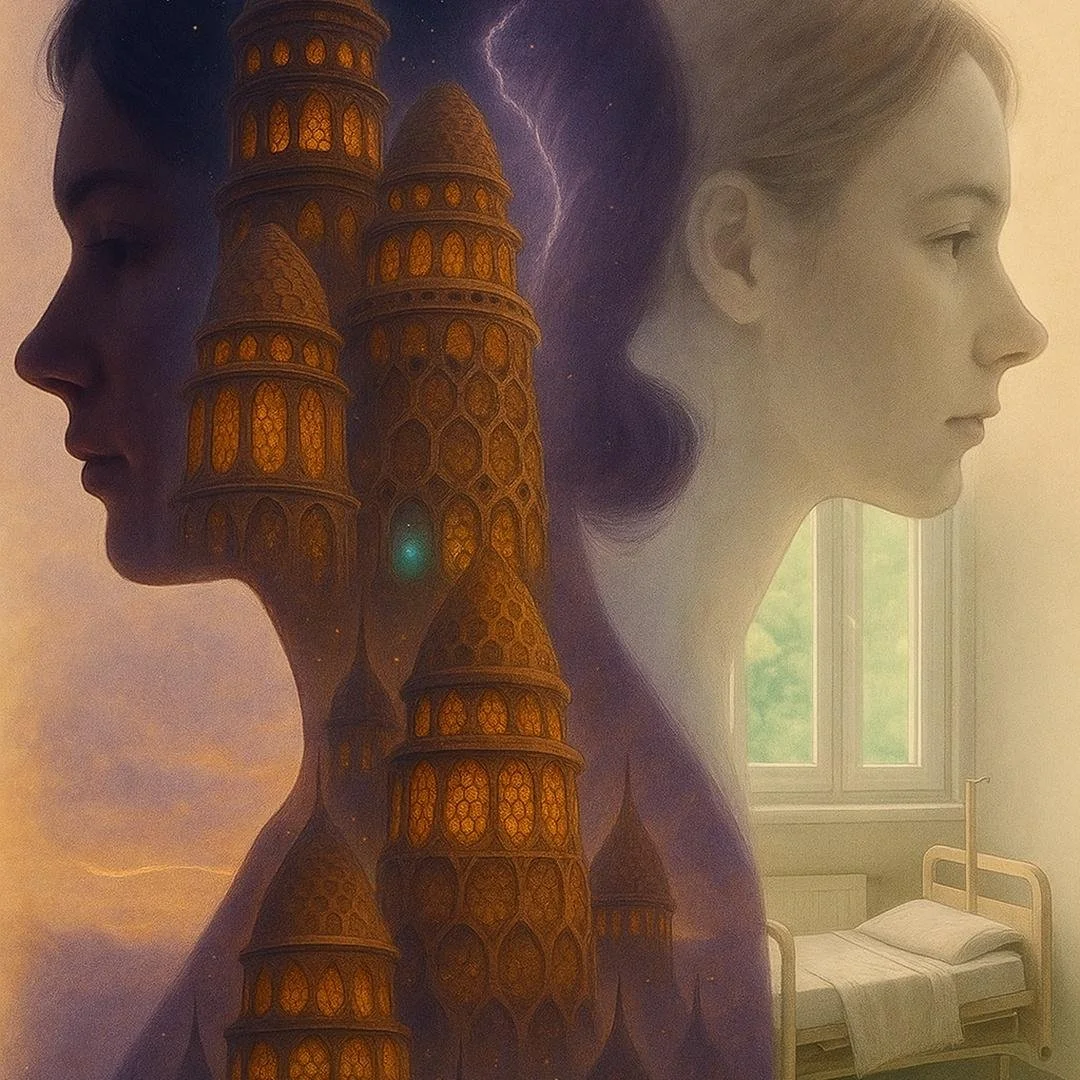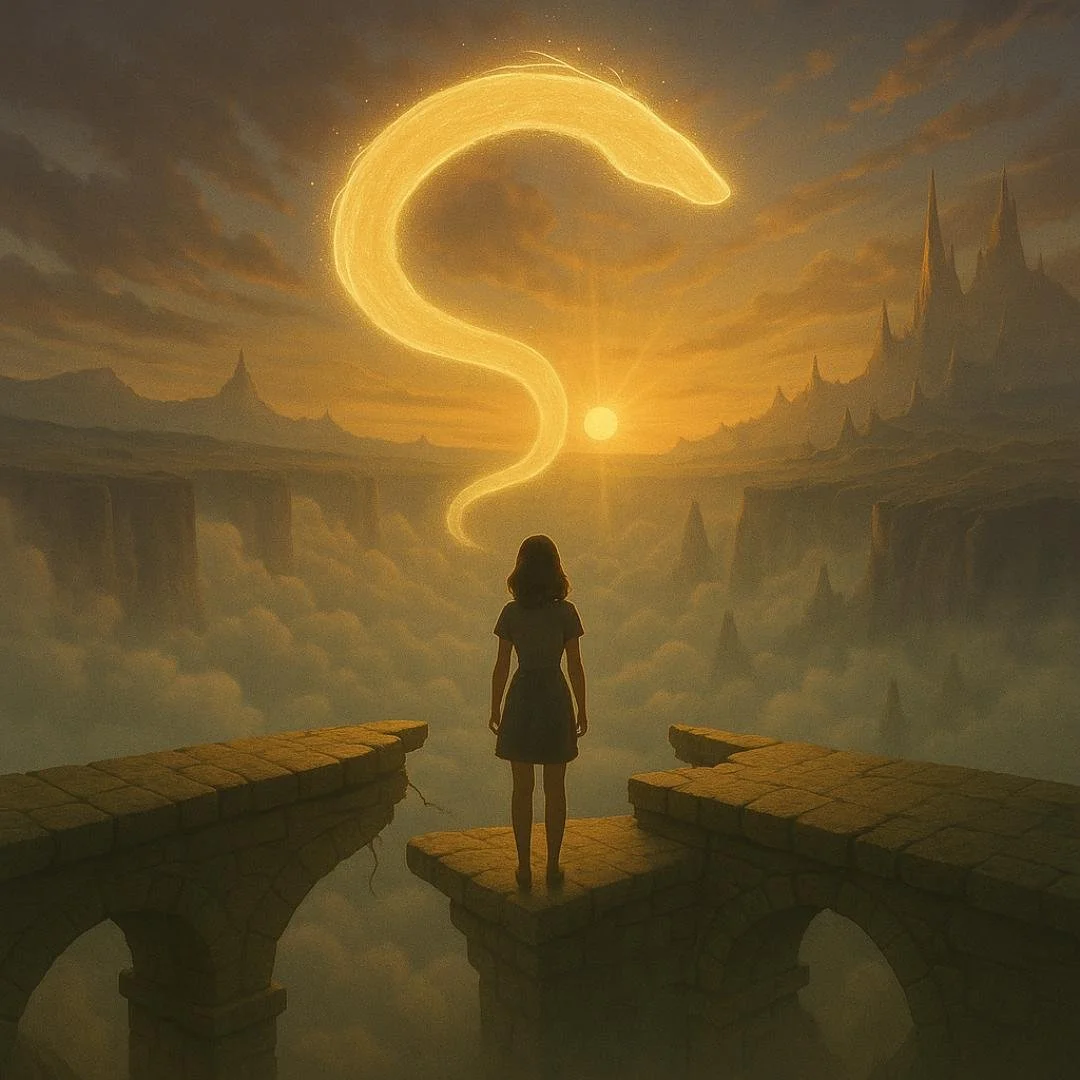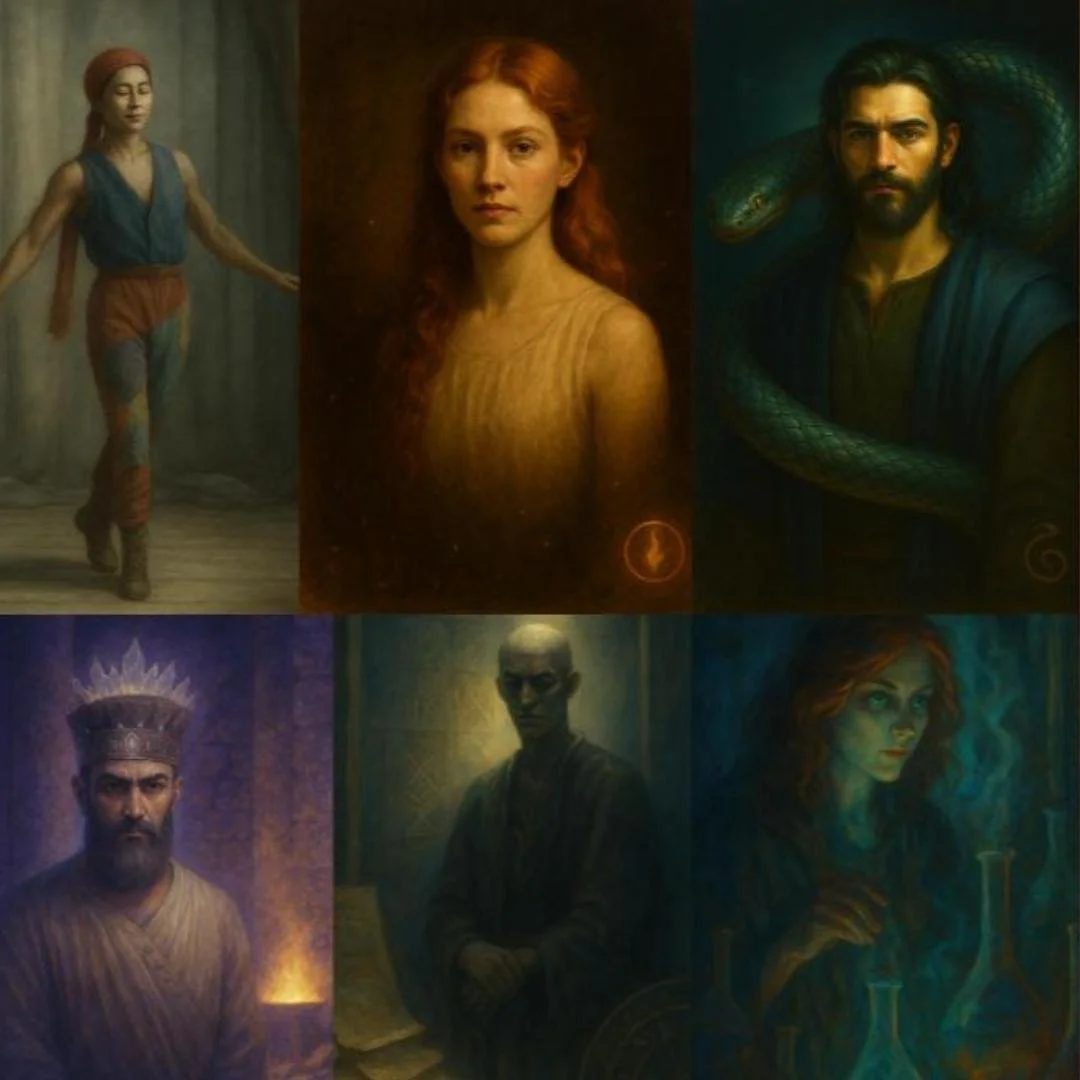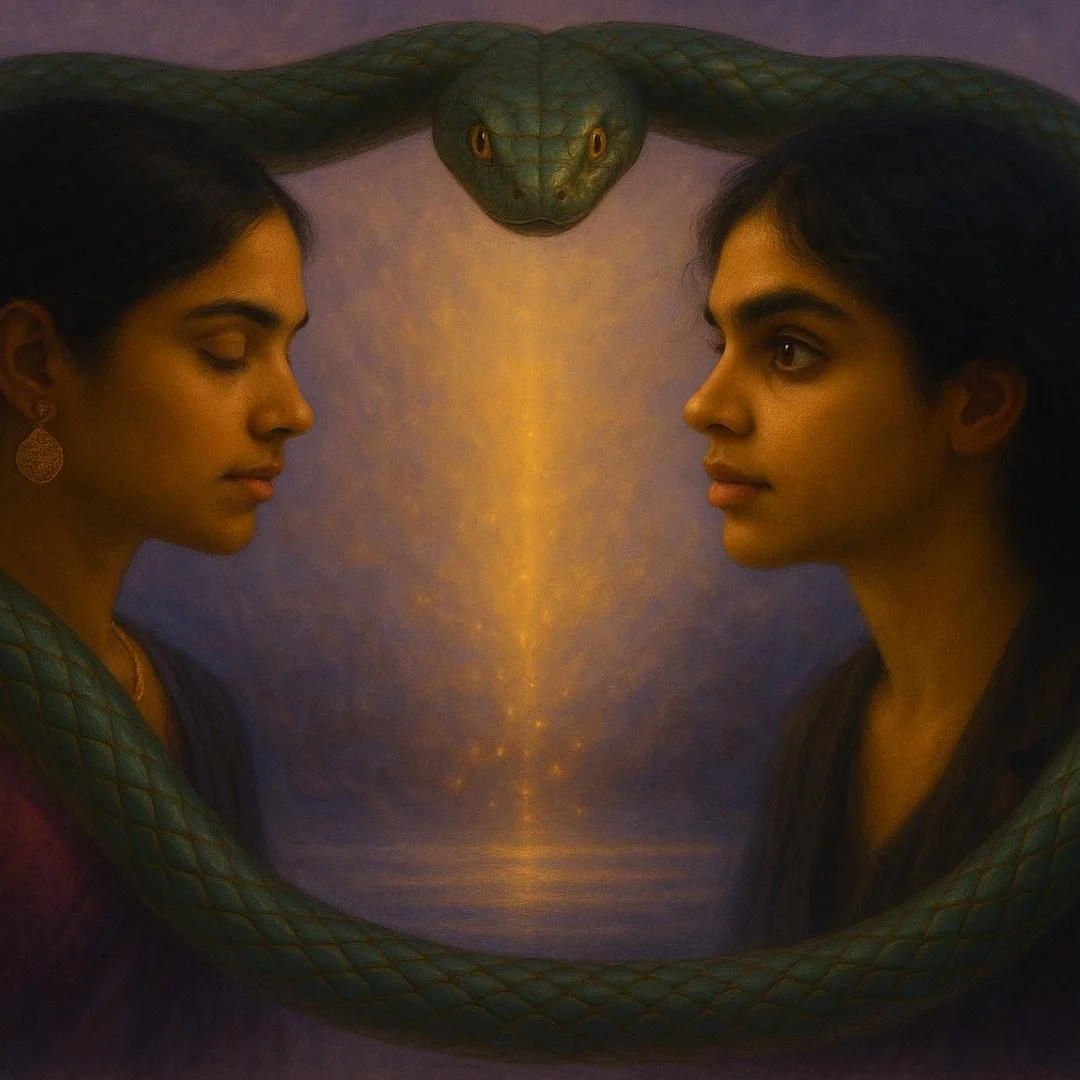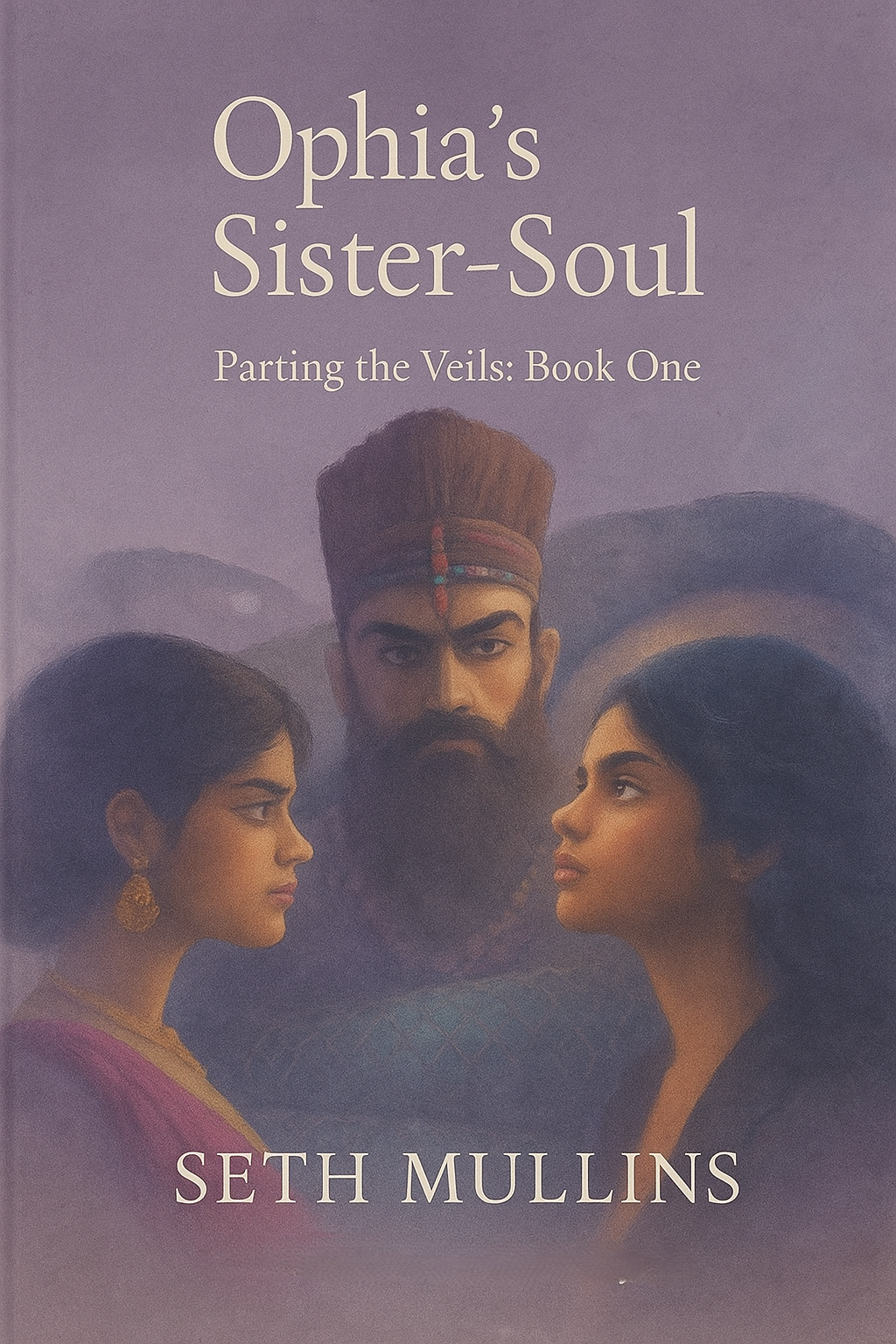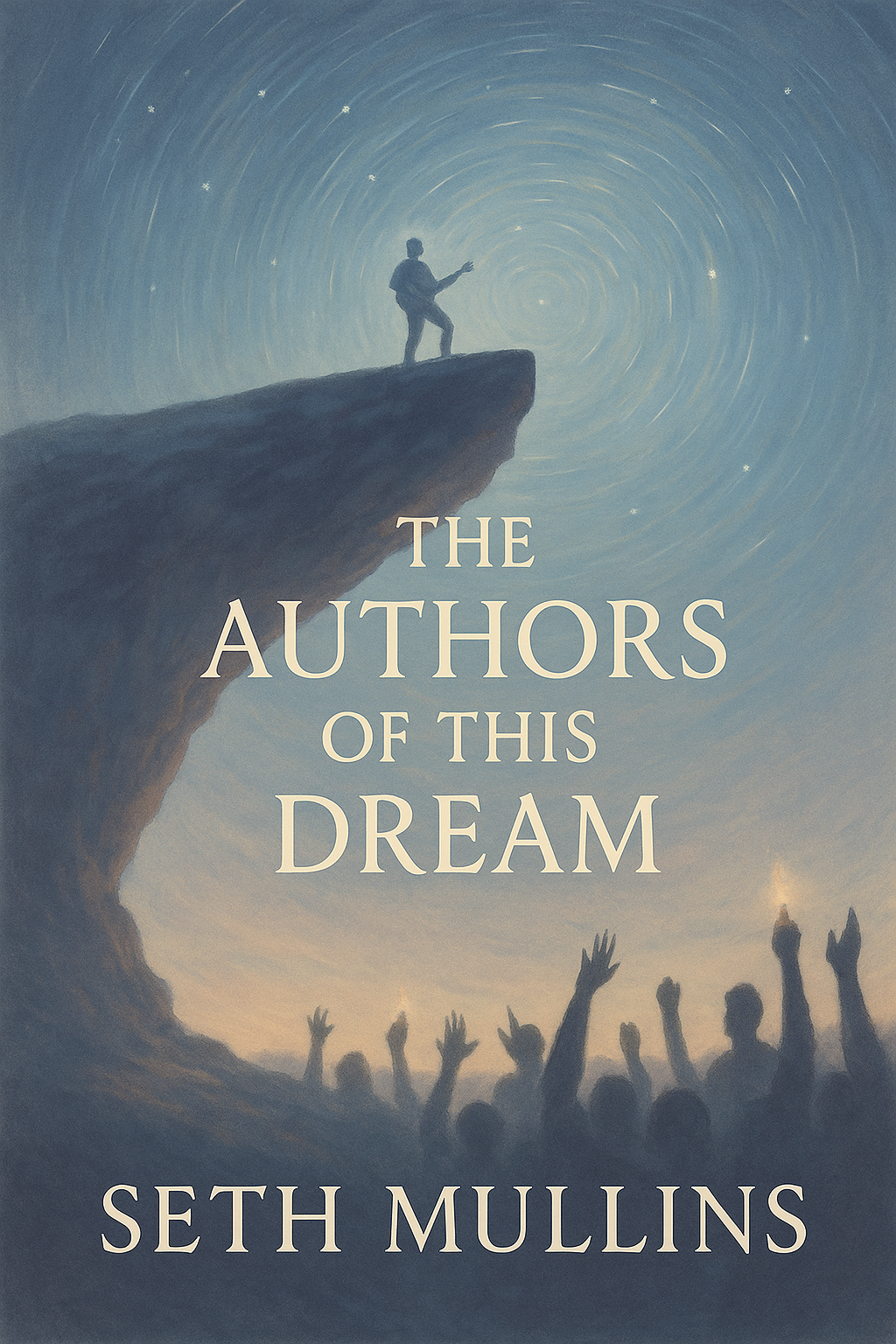
The Dreamers’ Crossing
Two souls.
One story.
And when one awakens…
…the other remembers.
Across conversations among readers, reviewers, and writers, there’s a recurring sense of quiet disappointment with much of contemporary fantasy. The genre feels, in many corners, as if it’s lost some of the depth, strangeness, and spiritual resonance that first drew people. As fantasy has gone more mainstream and commercial, mystery and wonder are often traded for familiarity and brandability.
Many works lean heavily into bleakness: worlds defined by cruelty, cynicism, and the “inevitability” of corruption. Hope itself is seen as naïve.
We are nurtured within a culture that esteems humanity's reasoning powers above all else. But the modern world is too complex, convoluted, and ever-changing to be navigated by reason alone. We have to trust our inner guidance. And sacred experience is not something that can be grasped intellectually. It must be felt.
This is the artists’ way: We open a door for the dream reality, for the other side, to impinge upon the waking world. Every myth begins as a conversation between worlds—the seen and the unseen, the artist and the fire that speaks through them.
In “Ophia’s Sister-Soul,” two realities reflect one another across the Veil. Ophia remembers what Earth has forgotten; Earth embodies what Ophia still dreams. Each twin world completes the other’s song. Whether Ophia is real, or a creation of Colleen’s (my earthly protagonist’s) psyche, may not even be the most pertinent question. In mythic storytelling, truth is measured by vitality and resonance. If a world touches you, it is real. The mirror between these two worlds allows every reader to find their own reflection—the internal Ophia that waits behind their daily lives.
What if the pain we carry is actually a bridge? What if our aching is a compass? What if that echo, that whisper in our souls, isn’t just a memory, but a signpost?
If you’ve ever felt the ache for a life you haven’t lived, a door you’ve walked past your whole life, finally opening, know that homecoming is possible—and this story may be for you.
A threshold between worlds. On the edge of a broken bridge, Colleen must choose whether to follow the serpent of light into Ophia—or let fear hold her to a crumbling Earth.
Found family—and the powers that oppose them. Wanderers, healers, priests, and a serpent-speaker gather around Colleen and Esperidi as their vow draws allies and enemies across two worlds.
One vow coils around two souls. Their soul-bond could heal them both—or let two worlds fall into darkness.

Beyond death, beyond distance,
some bonds are written in the fabric of creation. ✨
I write and dream where myth and memory meet — where story is a river we can enter and join the eternal human conversation.
The Dreamers’ Crossing began as a whisper in that space: a sonic mythology of dusk and becoming, where two voices — Colleen and Esperidi — move through the unseen landscape of the soul.
Ophia’s Sister-Soul and The Authors of This Dream were the first echoes - in different idioms - of this longing: to map the hidden geographies of transformation; to speak from the borderland between the inner world and the living myth that embodies it.
This project is a continuation of that quest —groping towards humanity’s awakening.
— Seth Mullins ✴ The Dreamers’ Crossing

Sacred memory…
Even when wonder is forbidden, someone must remember the song…
She dreamed of another sky… a world her heart remembered, though her mind forgot.
Every dream, a whisper.
Every loss, a door.


